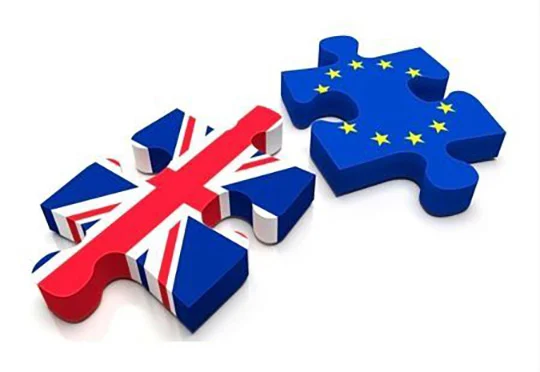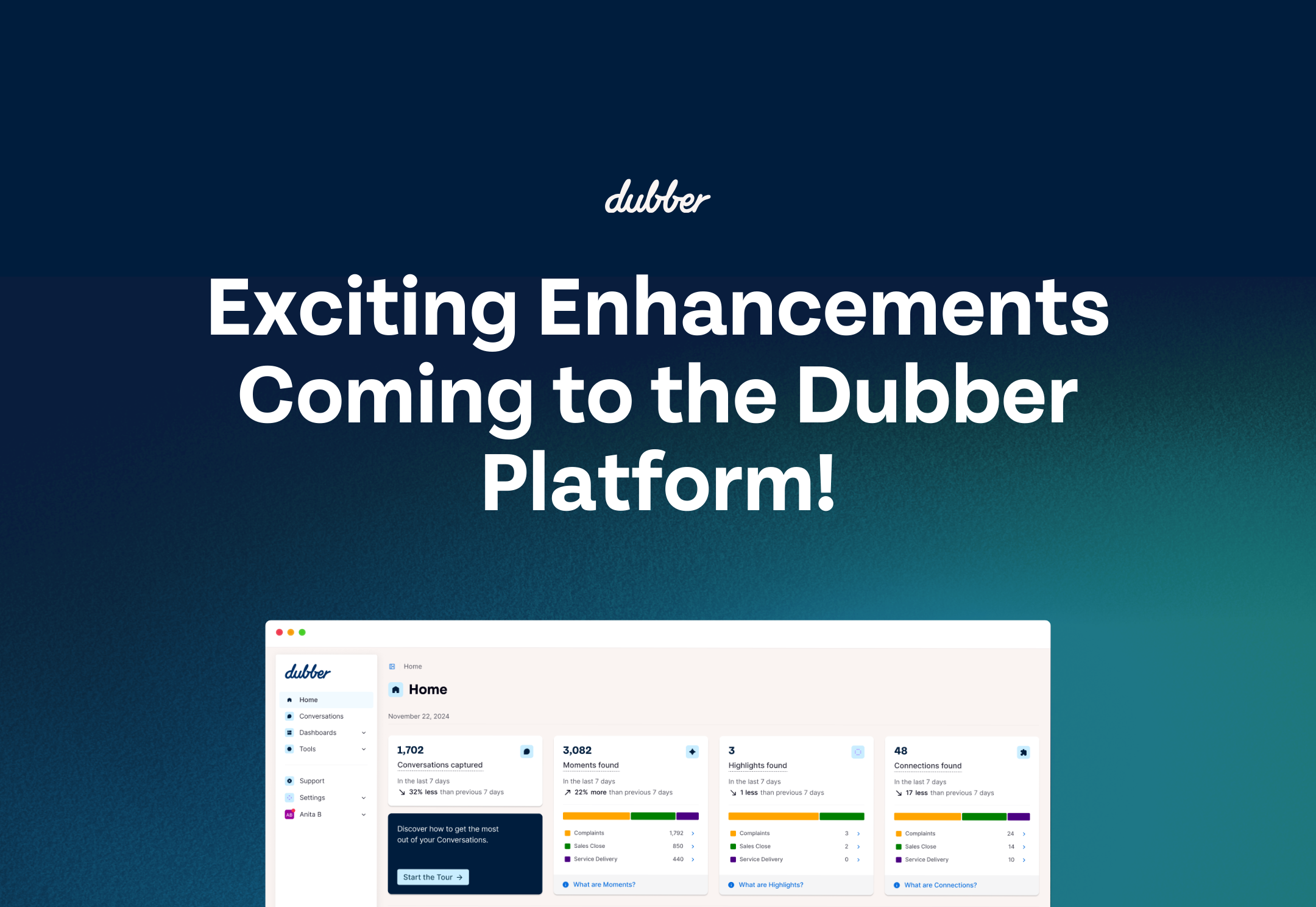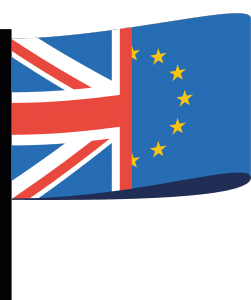
Laws and regulations put in place to protect consumers have been a large driving force behind recording communications between businesses and their customer. As remote communication overtakes face to face human interaction, it’s paramount to have procedures in place to ensure people are who they say they are at other the end of the line and also to make sure that the communication is safely recorded to resolve any incidents in future.
We’ve all come across the common line when you’re waiting to get through to a customer service agent: “This call maybe recorded for monitoring and training purposes.”. However some organisations may be recording calls to follow regulations, which you might not be aware of. Here’s are some key industries who are keeping their consumers safe through intelligent communications recording:
Contact Centres (Non-financial)
The most common use case for call recording regulations is seen in contact centres where customer service resolve an array of users’ issues. For training purposes and to resolve potential disputes, calls often get recorded at call centres. According to Ofcom’s (the UK’s communications regulator) guidance for recording calls in the UK, contact centres who look to monitor, record calls and communications are required to adhere to a combination of UK & EU legislation which includes but is not limited to:
- Regulation of Investigatory Powers Act 2000 (“RIPA”).
- Telecommunications (Lawful Business Practice)(Interception of Communications) Regulations 2000 (“LBP Regulations”).
- Data Protection Act 1998.
- Telecommunications (Data Protection and Privacy) Regulations 1999.
- Human Rights Act 1998.
To summarise the legislation, a home or business user may record communications without permission of the correspondent as long as they do not share the data with a third party, where then they would need to have their consent.
Additionally through the aforementioned LBP Regulations. A business can monitor and record communications as long as they are for a series of laid out circumstances such as preventing or detecting crime or to measure quality. The purpose of most other legislation is to avoid misuse and abuse of recordings.
Financial Services
According to the UK’s financial regulator, the Financial Conduct Authority (FCA) a series of financial firms are bound by law to record and safely store their communications. These call recording regulations were put in place to “tackle market abuse by identifying and punishing those responsible”.
To begin with, only some financial services companies are required to adhere to call recording. For example retail finance advisors, mortgage brokers, insurance brokers and some others are not required to capture their communications. More stringent rules apply to firms which are in a highly influential position such as investment advisors and stock brokers.
The type of calls that need to be recorded are specifically outlined as ones which:
- conclude an agreement with any client or with another regulated firm on behalf of a client;
or
- are conducted with a professional client or eligible counterparty with a view to concluding an agreement.
Payment Card Industry (PCI Compliance)
On the back of an earlier initiative by VISA, in 2004, the major card companies aligned to form the Payment Card Industry Security Standards Council (PCI DSS). On December 15th 2004, the PCI DSS 1.0 was released. Over the following years PCI DSS has evolved to not only provide greater security to the industry, but also to accommodate new technology advancements and is today the global data security standard for payment cards.
If your organisation is looking be PCI compliant then as part of the PCI Data Security Standard (PCI DSS), you’ll be facing the issue of recording sensitive authentication data (SAD) when taking payments through the phone or other devices.
It is a violation of PCI DSS requirement 3.2 to store any SAD, including card validation codes and values, after authorisation – even if the data has been fully encrypted. It is therefore prohibited to use any form of digital audio recording (using formats such as wav, mp3 etc) to store CAV2, CVC2, CVV2 or CID codes after authorisation if that data can be queried; recognising that multiple tools exist that potentially could query a variety of digital recordings.
Dubber or similar services, could assist organisations to become PCI DSS compliant when it comes to recording their communication. Dubber does this in two ways:
- Dubber’s PCI integration technology with Automated Pause/Resume helps a customer to comply with the Payment Card Industry’s Data Security Standard (PCI DSS). This is accomplished by automatically muting and unmuting a recording when pre-defined system events are detected.
- The Dubber PCI Payment Node can easily implement PCI compliant payments using the new Dubber PCI Payment Node. During a call, a PCI compliance transaction is required and the process is triggered by agent. At that point the agent transfers call to the PCI Payment Node (hotkey or phone number) the Node scripts take over, requesting the relevant details (e.g. amount, card number etc). The captured payment details are sent automatically to the merchant for completion. Once the transaction is completed, the caller is connected back with the agent to complete the call.
If you’re looking to implement call recording and you’re not sure about the relevant compliance which you’ll need to adhere to, contact your industry authority for further information on specific regulations and legislations.

At Dubber we’re excited to announce a new partnership with a leading, UK based Computer Telephony provider, Mondago. Mondago specialise in providing unified communication solutions with a strong emphasis on CRM integration to manufacturers and providers of telephone systems.
Through Dubber and Mondago’s new partnership, Mondago’s flagship Go Integrator product is now able to provide as simple, automated pause and resume of calls being recorded, using Dubber’s cloud based service. A simple change in browser URL or PC client window can be used to automatically send a pause and resume command to the call recorder avoiding the need for the user to manually undertake this action using the handset keyboard. This feature is particularly useful for agents taking credit card type details over the phone.
“As Dubber has passed BroadSoft’s rigorous interoperability tests, we were able to quickly update our popular Go Integrator product to include this additional functionality. This means additional value-add to our customers, with minimal effort.” Rob Cox – Commercial Director at Mondago
“We’re excited to be integrated with such an innovative product suite and adding value to a network of users through Mondago. This partnership demonstrates the extent which cloud telephony is evolving and growing as we know it.” James Slaney – Global Manager at Dubber
For more information about this partnership, or if you’d like to find out how you can benefit from these services, just drop us a note through this form.

Even though it was a shock to the system, the effects of Brexit are not yet visible throughout majority of industries. The sterling has dropped against the dollar and some property finance organisations have paused investments. Apart from that, it’s business as usual for most of us. And those who are invested in trade with EU, are waiting to see what kind of a deal UK’s newly appointed Prime Minister, Theresa May, will close with the Union.
So as everyone is looking closely at what kind of trade deals UK and EU will close, is anyone actually looking at what will happen to all of our data and what kind of laws citizens of UK will be protected by when it comes to their personal information being exploited by the Cloud giants like Facebook and Google?
Trade agreements between governments are notorious for taking up to a decade to complete. Even though the EU members and UK would like to start the divorce process as quick as possible, we can boldly assume the UK will end up with a deal similar to what Norway got.
When it comes to our data, as long as the UK is still part of the European Union, we’re protected by EU laws and safe guarded from the by the giants under the Safe Harbour succeeding successor agreement called Privacy Shield. As mentioned in the agreement, this new framework will come into force practice from this Summer. But after Theresa May triggers Article 50, what will happen then?
In a very unlikely scenario, the data giants will pack up their UK offices and move to an EU member state and the data policies that protect them and their customers remains the same.
A more likely scenario is that in the short term, UK will adopt new data protection laws which mirror EU laws and anyone operating in the kingdom will be bound to and protected by these regulations.
Lastly, UK is likely to agree to a deal which means even though it’s not a full member, it will be treated as a second-class member where it will have access to tariff-free trade with EU, and would have to agree, at least on an interim basis, to Free Movement for citizens of member states, and not to rock the boat and keep the giants happy, enjoy the EU’s data protection laws and the new Privacy Shield agreement with US.

The British public have spoken and they want out (of the European Union). In the months running up to the June 23rd referendum the sterling took a plunge but made a bullish recovery ’til the the night of voting. Following the success of Vote Leave, as it was announced throughout the night and morning of 24th, we’ve seen the FTSE 100 and the GBP take huge dives.
With both now being slowly on the mend, it makes me wonder, how is rest of the economy going to react to this within short and medium terms. When it comes to Telcos and service providers, where can we see drastic changes in the near future?
Relocation, Roaming, International Calls and Spectrums
When it comes to mobile carriers and large telecommunication organisations, there are four major areas we can speculate about, and these are the ones we’ll be discussing here. First will be major providers considering moving their European headquarters outside of UK.
We can draw from Mr Colao, Vodafone’s CEO hinting that FTSE 100 companies such as Vodafone could move their headquarters if the free movement of people and capital was restricted. Freedom of movement may become more regulated in a UK outside of EU, but will movement of capital will ever become restrictive enough for companies such as Vodafone to consider relocating their headquarters?
Second is international calls. On the back of Britain leaving the EU, we might see another Scottish referendum in order for the Scots to leave the UK and apply for an individual EU membership. In basic terms, a phone call from Scotland to England would then count as an international call and the new costs imposed on consumers.
Next area of concern is roaming charges. The European Commission recently ruled in favour of abolishing roaming charges by June 2017. Companies like Vodafone and Three have already been rolling this offer to their customers. By the time UK has triggered Article 50 and spent the next two years negotiating a deal to exit the EU, we might see roaming charges snapped back into place for UK customers, travelling through Europe.
Regarding the fourth area of change, according to Bird & Bird, following Brexit, the UK is not going to be subject to decisions and regulations set by the Commission on spectrum allocations and use across the EU. Most likely UK will cooperate with member states and neighbouring countries, however regulatory divergence may rise between UK and EU in respect of regulations of OTT services. UK may take a more liberal approach on these services that could help add to stagnant revenue streams of carriers and telcos in west Europe.
For the year ended 31 March 2016, Vodafone reported organic group revenue growth of 2.3%. Most of this growth came from outside the company’s European area of operations. Vodafone’s service revenue from its African, Middle Eastern and Asia-Pacific operations grew at 6.9% year-on-year. European service revenue shrank by 0.6% on an organic basis for the period and UK service revenue contracted by 0.3% for the period.
Telcos are not Brexit ready
In a recent poll by Pinsent Masons, an international law firm, has highlighted that only 35% of telecommunication firms polled have a clear plan for dealing with impact of UK leaving EU.
In addition a recent survey by TechUK of 277 technology business leaders found 70% were in favour of staying in the EU, with only 15% supporting a Brexit. More than 90% of those in favour of leaving the EU said it would give the UK more flexibility in a global economy, and 64% believed it would make the UK more globally competitive. Here we can argue that the main disadvantages of staying in the EU would be around red tapes and regulations enforced by EU on UK innovation and growth in these areas.
To summarise, nearly in each area where a door is closed by UK leaving the EU, a new one may open through opportunity, innovation and investment. A lot will come down to the negotiations in the next two years, who the Conservative party will nominate to lead the country through these negotiations and how quickly the nation can unify and back the majority decision in the referendum. As roaming and spectrum rules could become British, it is very likely that they will mirror the European approach in these instances and we won’t see any immediate benefits from a new ‘free market’ that is to be the new UK.

Dubber Annual Report 30 June 2016

Additional Information – AVC One for Call Recording

A snapshot into the evolution of unified communications and call recording through the last two centuries. From the first telephone operators to new generation of communication recording intelligence.

Cloud-based call recording technology provider Dubber Corporation Limited (ASX: DUB) (“Dubber”) is pleased to announce it has been selected by UK telecommunications and IT service provider, AVC One (“AVC”), to provide call recording services via AVC’s BroadSoft platform.
AVC’s management team are pioneers of BroadSoft’s unified communications (UC) platform, and were one of the first to adopt BroadSoft’s technology in the UK in 2002. The company has subsequently built a channel network of service providers and resellers, and count many high profile UK brands as customers.
The agreement with AVC is the first customer engagement with Siphon Networks, under a distribution agreement commenced in March 2016. As an existing provider of BroadSoft managed services to AVC, Siphon have been an integral part of the agreement and are providing integration resources to deploy Dubber on AVC’s platform. AVC will initially deliver a minimum of 1,000 contracted ‘reserved’ users, which will expand with opportunities from both existing AVC call recording users and those requiring unique functionality provided by Dubber.

On Monday 30th May 2016 we proudly announced that Dubber has been selected by BroadSoft as their chosen partner for Audio Call Recording to be provided as part of their managed services, BroadCloud, for Japanese telecommunications carries.
BroadCloud is a fully managed service that delivers BroadSoft’s extensive range of Unified Communications services. This includes managing end-to-end customer sales and service implementation processes.
This managed services offering has been available through a series of telecommunication and carrier partners in US , however BroadCloud rapidly expanding this offering into new demographics, such as France and Japan. This news has been eagerly awaited and we’ve seen some innovative service providers such as NIFTY Japan, take it onboard immediately.
Now as Dubber is chosen to be part of the BroadSoft’s managed service offering in Japan, we can start to see a series of market leading and innovative servicer providers taking on and expanding’s Dubber’s Audio Call Recording platform, to enable a secure, easy to manage and on-demand scalable solution to their end users.

Audio Recording Capabilities for BroadSoft Japan



